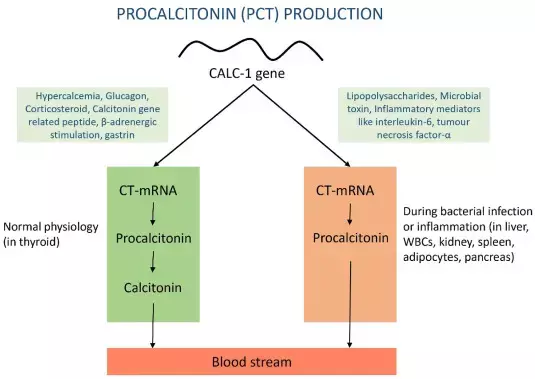- Home
- Medical news & Guidelines
- Anesthesiology
- Cardiology and CTVS
- Critical Care
- Dentistry
- Dermatology
- Diabetes and Endocrinology
- ENT
- Gastroenterology
- Medicine
- Nephrology
- Neurology
- Obstretics-Gynaecology
- Oncology
- Ophthalmology
- Orthopaedics
- Pediatrics-Neonatology
- Psychiatry
- Pulmonology
- Radiology
- Surgery
- Urology
- Laboratory Medicine
- Diet
- Nursing
- Paramedical
- Physiotherapy
- Health news
- Fact Check
- Bone Health Fact Check
- Brain Health Fact Check
- Cancer Related Fact Check
- Child Care Fact Check
- Dental and oral health fact check
- Diabetes and metabolic health fact check
- Diet and Nutrition Fact Check
- Eye and ENT Care Fact Check
- Fitness fact check
- Gut health fact check
- Heart health fact check
- Kidney health fact check
- Medical education fact check
- Men's health fact check
- Respiratory fact check
- Skin and hair care fact check
- Vaccine and Immunization fact check
- Women's health fact check
- AYUSH
- State News
- Andaman and Nicobar Islands
- Andhra Pradesh
- Arunachal Pradesh
- Assam
- Bihar
- Chandigarh
- Chattisgarh
- Dadra and Nagar Haveli
- Daman and Diu
- Delhi
- Goa
- Gujarat
- Haryana
- Himachal Pradesh
- Jammu & Kashmir
- Jharkhand
- Karnataka
- Kerala
- Ladakh
- Lakshadweep
- Madhya Pradesh
- Maharashtra
- Manipur
- Meghalaya
- Mizoram
- Nagaland
- Odisha
- Puducherry
- Punjab
- Rajasthan
- Sikkim
- Tamil Nadu
- Telangana
- Tripura
- Uttar Pradesh
- Uttrakhand
- West Bengal
- Medical Education
- Industry
Procalcitonin most sensitive and specific systemic marker in differentiating septic from aseptic arthritis

Procalcitonin seems to be the most sensitive and specific systemic marker in differentiating septic from aseptic arthritis suggests a new study published in the Am Acad Orthop Surg Glob Res Rev.
Differentiating septic arthritis from aseptic arthritis (AA) of the knee is difficult without arthrocentesis. Although procalcitonin (PCT) has shown diagnostic value in identifying bacterial infections, it has not been established as a reliable marker for identifying septic arthritis (SA). Recent studies have shown promise in the use of PCT as a useful systemic marker for identifying septic arthritis versus AA. This observational retrospective review compares PCT with routine inflammatory markers as a tool for differentiating septic arthritis versus AA in patients with acute, atraumatic knee pain.
Fifty-three consecutive patients (24 SA, 29 AA) were retrospectively reviewed at one institution with concern for SA. SA was diagnosed based on a physical examination, laboratory markers, and arthrocentesis. Laboratory indices were compared between the septic arthritis and AA groups. Data analysis was conducted to define sensitivity and specificity. Receiver operator characteristic curve analysis and regression were conducted to determine the best marker for acute SA of the knee.
Results:
Using multiple logistic regression, bacteremia (OR 6.75 ± 5.75) was determined to be the greatest predictor of SA. On linear regression, concomitant bacteremia (coef 3.07 ± 0.87), SA (coef 2.18 ± 0.70), and the presence of pseudogout crystals (coef 1.80 ± 0.83) on microscopy predicted an increase in PCT. Using a PCT cutoff of 0.25 ng/mL yields a sensitivity of 91.7% and specificity of 55.2% for predicting SA; however, the ideal cutoff in our series was 0.32 ng/mL with a sensitivity of 79.2% and specificity of 72.4%. PCT was superior to the white blood cell count, erythrocyte sedimentation rate, and C-reactive protein in the area under the receiver-operating characteristic curve analysis.
Procalcitonin seems to be the most sensitive and specific systemic marker in differentiating septic from AA.
Reference:
West K, Almekdash H, Fisher J, Rounds AD, Murphree J, Simpson J. Procalcitonin as a Predictor of Septic Knee Arthritis: A Retrospective Cohort Study. J Am Acad Orthop Surg Glob Res Rev. 2023 Jan 9;7(1):e22.00261. doi: 10.5435/JAAOSGlobal-D-22-00261. PMCID: PMC9831185.
Keywords:
West K, Almekdash H, Fisher J, Rounds AD, Murphree J, Simpson J. Procalcitonin, Predictor, Septic, Knee, Arthritis, Retrospective Cohort Study, J Am Acad Orthop Surg Glob Res Rev.
Dr. Shravani Dali has completed her BDS from Pravara institute of medical sciences, loni. Following which she extensively worked in the healthcare sector for 2+ years. She has been actively involved in writing blogs in field of health and wellness. Currently she is pursuing her Masters of public health-health administration from Tata institute of social sciences. She can be contacted at editorial@medicaldialogues.in.
Dr Kamal Kant Kohli-MBBS, DTCD- a chest specialist with more than 30 years of practice and a flair for writing clinical articles, Dr Kamal Kant Kohli joined Medical Dialogues as a Chief Editor of Medical News. Besides writing articles, as an editor, he proofreads and verifies all the medical content published on Medical Dialogues including those coming from journals, studies,medical conferences,guidelines etc. Email: drkohli@medicaldialogues.in. Contact no. 011-43720751


